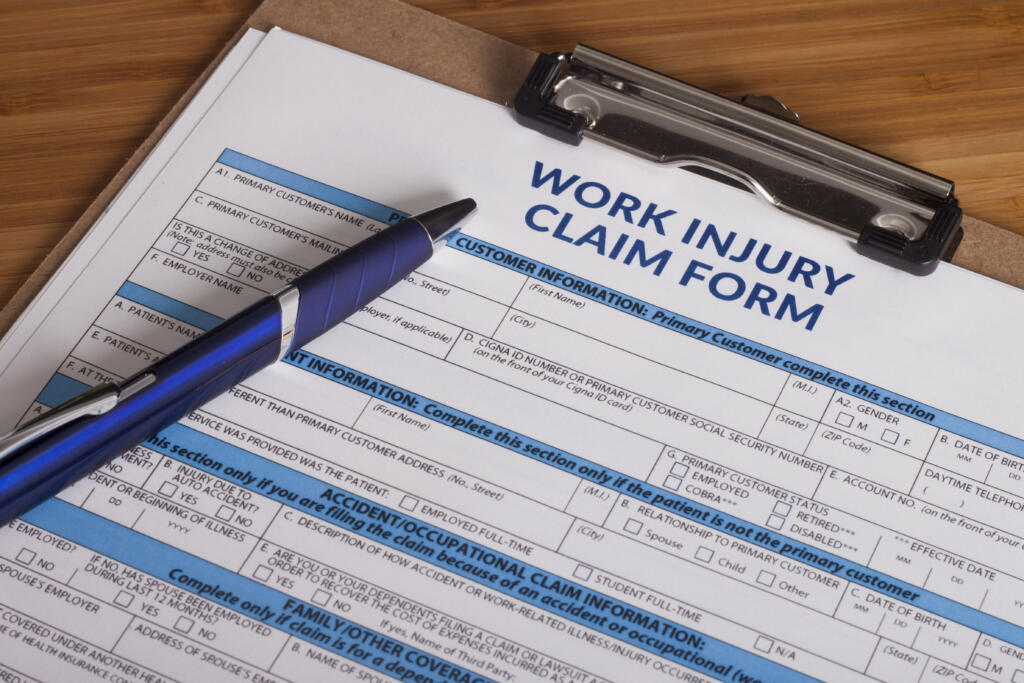Workers’ compensation can be a complicated thing. If you get injured or fall ill as a result of your work, workers’ comp is supposed to support you. Yet each year, many valid workers’ compensation cases go unclaimed. Injured and ill employees fail to hold their workplaces and employers accountable – and they lose out on critical financial benefits. However, an attorney can help. You can find workers’ compensation attorneys by searching online today.
A workers’ comp attorney can ensure you get the benefits you deserve. They can tell you if you have a case against your employer and if you’re able to get financial compensation. An attorney can even fight for fair compensation on your behalf. Search online to find lawyers experienced in workers’ compensation cases in your local area.
 danielfela / Shutterstock
danielfela / ShutterstockDon’t let a potential workers’ comp claim fade away. If you’re wondering whether or not your recent illness or injury might qualify you for workers’ compensation benefits, here’s how you can find out.
You Need to Meet Four Basic Requirements
In order to file a workers’ compensation claim, you’ll need to meet certain legal requirements. These requirements aren’t difficult – they’re just the standards by which your claim will be judged. Because these kinds of cases can be complex, it’s a good idea to make sure you really can hold your employer or workplace accountable before pursuing anything.
Make sure your potential workers’ comp claim meets these four requirements before taking on any kind of case or legal action.
1. Your Employer is Covered by Workers’ Compensation
In order for you to take advantage of workers’ comp benefits, your employer must carry workers’ compensation coverage. Fortunately, most employers are covered for this.
The law varies from state to state, but typically it’s an employer’s job to have the coverage needed for potential workers’ comp cases¹. Even businesses that have just one employee are required to carry this coverage in most states.
So, as long as your employer carries workers’ comp insurance, you’ve cleared the first requirement for qualification.
However, keep in mind there are exceptions. If your employer isn’t required to carry workers’ compensation insurance but chooses to do so, for example, you will be able to get benefits and file a claim². But you likely won’t be able to file a lawsuit against your employer, since they technically carry more coverage than is required of them.
Additionally, individuals who work for state and federal government agencies will have to deal with an entirely different workers’ comp system. Search online to learn more about unique workers’ compensation requirements for these types of jobs and claims.
2. You’re an Employee
Once you’ve confirmed that your employer does in fact carry workers’ compensation insurance, you must make sure that you’re an employee.
Being an employee isn’t always as simple as performing work for a company. Not all workers are employees – and according to workers’ compensation eligibility, only certain types of employees qualify to file a claim.
You need to be an employee who’s categorized as an employee within a company³. Independent contractors, like freelancers, consultants, or gig workers, are not employees. Volunteers who “donate” time and work for free, are also not employees. Neither of these types of workers are entitled to workers’ comp benefits.
However, you may still have a legal case if you’re an independent contractor. Because employers frequently misclassify workers in order to avoid paying more taxes, you can try to get compensation for your illness or injury⁴. You’ll need to take the dispute to court, and you’ll want to have a workers’ comp attorney on your side. Search online to find a workers’ compensation lawyer who’s experienced in cases like this.
3. Your Injury or Illness is Related to Work
Next, you’ll need to make certain that your specific injury or illness is directly related to your work. This is where workers’ comp cases can get tricky.
In general, if you were doing something for your employer and wound up injured or ill as a result, it’s considered a work-related injury or illness⁵. So, if you injured your back while lifting items as part of your daily work responsibilities, that qualifies. If you develop carpal tunnel syndrome because you’re frequently typing at work, that qualifies.
But it isn’t always so clear which issues are work-related and which are not. If you’re injured on your lunch break, for example, or at a company-sponsored event, your injury or illness may not qualify.
In order to get workers’ comp benefits, you’ll have to be able to show that your injury or illness is work-related. Specifically, you’ll need to prove that it is “arising out of employment” or “occuring during the course of employment.”⁶ Essentially, you need to be certain that your injury or illness happened because you were doing something related to your job.
4. Make Sure You’re Within the Required Deadlines
The final eligibility requirement is filing a workers’ comp claim in time. You might think you have plenty of time to decide whether or not you’ll be filing a claim – but you must meet certain deadlines. Otherwise, you’ll lose out on eligibility entirely.
Here are the steps you need to take ASAP if you’re thinking about filing a workers’ comp claim so you make sure you qualify in time⁷:
- Report the injury to your employer immediately. You need to give notice within 10 to 90 days depending on your state’s requirements.
- File a workers’ comp claim with the state. You need to file a claim with your state’s workers’ compensation agency. Your employer may be able to do this for you, but it’s important to be involved. You have between one and three years on average to do this.
- Submit your medical bills to your employer. If your claim is approved, you’ll need to submit your medical bills regularly. These deadlines vary from insurance company to insurance company.
- Determine if your claim needs to be reopened. If your medical condition worsens, you may need to amend or reopen your workers’ comp claim. Typically, you have three to five years to do this.
Additionally, if you’re dealing with a moderate injury or illness, it could get worse over time. You may not think you need to file a workers’ comp claim initially, but you don’t want to risk waiting. Delaying the filing process could cause you to completely miss out⁸. Your opportunity to get workers’ comp benefits could disappear before your injury or illness gets worse. And that could really cost you.
Search Online to Find a Works’ Compensation Attorney Who Can Help
If you think you might meet the above requirements for a workers’ compensation claim, it’s important to take action right away. Waiting could cause you to miss critical deadlines, and that could cause you to lose out on any potential benefits.
The best way to deal with a potential workers’ comp claim is to hire an attorney. You want a legal expert who’s experienced in these types of cases on your side. Hiring a workers’ comp attorney could help you get through the process faster and more easily. And your attorney can help you get the benefits and financial compensation you deserve.
To find an attorney, search online for workers’ compensation lawyers in your area. You can easily compare your options right online.


